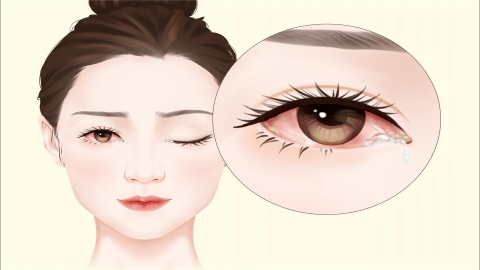What Foods Should Be Avoided in Allergic Conjunctivitis
Generally, there are no absolute foods that people with allergic conjunctivitis cannot eat. However, it is not recommended to consume mangoes, sea shrimp, crabs, pineapples, chili peppers, and similar foods. Detailed explanations are as follows:
1. Mango
Mangoes contain certain allergenic proteins and urushiol-like substances, which can easily stimulate the immune system and trigger allergic reactions. In some individuals, consumption may cause symptoms such as itching and swelling of the eyes, worsening the condition of allergic conjunctivitis. Therefore, it is not recommended.
2. Sea Shrimp
Sea shrimp are common seafood allergens. The foreign proteins in shrimp may activate the immune system upon entering the body, inducing or exacerbating allergic reactions. In individuals with allergic conjunctivitis, consumption may intensify ocular discomfort symptoms such as itching, tearing, and conjunctival congestion. Therefore, it is best to avoid eating them.

3. Crab
Crabs, like sea shrimp, contain high levels of foreign proteins, which can easily become allergens. When individuals with allergic conjunctivitis consume crab, the immune system may recognize these substances as harmful, triggering allergic reactions and worsening ocular allergy symptoms, which is detrimental to recovery. Therefore, it is not recommended.
4. Pineapple
Pineapples contain bromelain, an enzymatic substance that may irritate oral mucosa and other body tissues and also act as an allergen, inducing allergic reactions. Consumption by individuals with allergic conjunctivitis may lead to symptoms such as eye itching and swelling, worsening the condition. Therefore, it is best to avoid eating them.
5. Chili Pepper
Chili peppers are spicy, irritating foods containing capsaicin, which can irritate mucous membranes throughout the body, including the conjunctiva. Consumption may cause ocular blood vessel dilation, worsening symptoms such as conjunctival congestion and itching, and may also affect the stability of the body's allergic state, hindering recovery from allergic conjunctivitis. Therefore, they should be avoided.
In addition, individuals with allergic conjunctivitis should also avoid eating durian, scallops, and similar foods as much as possible. At the same time, in daily life, they should avoid contact with environmental allergens such as pollen and dust mites, and maintain ocular hygiene.









